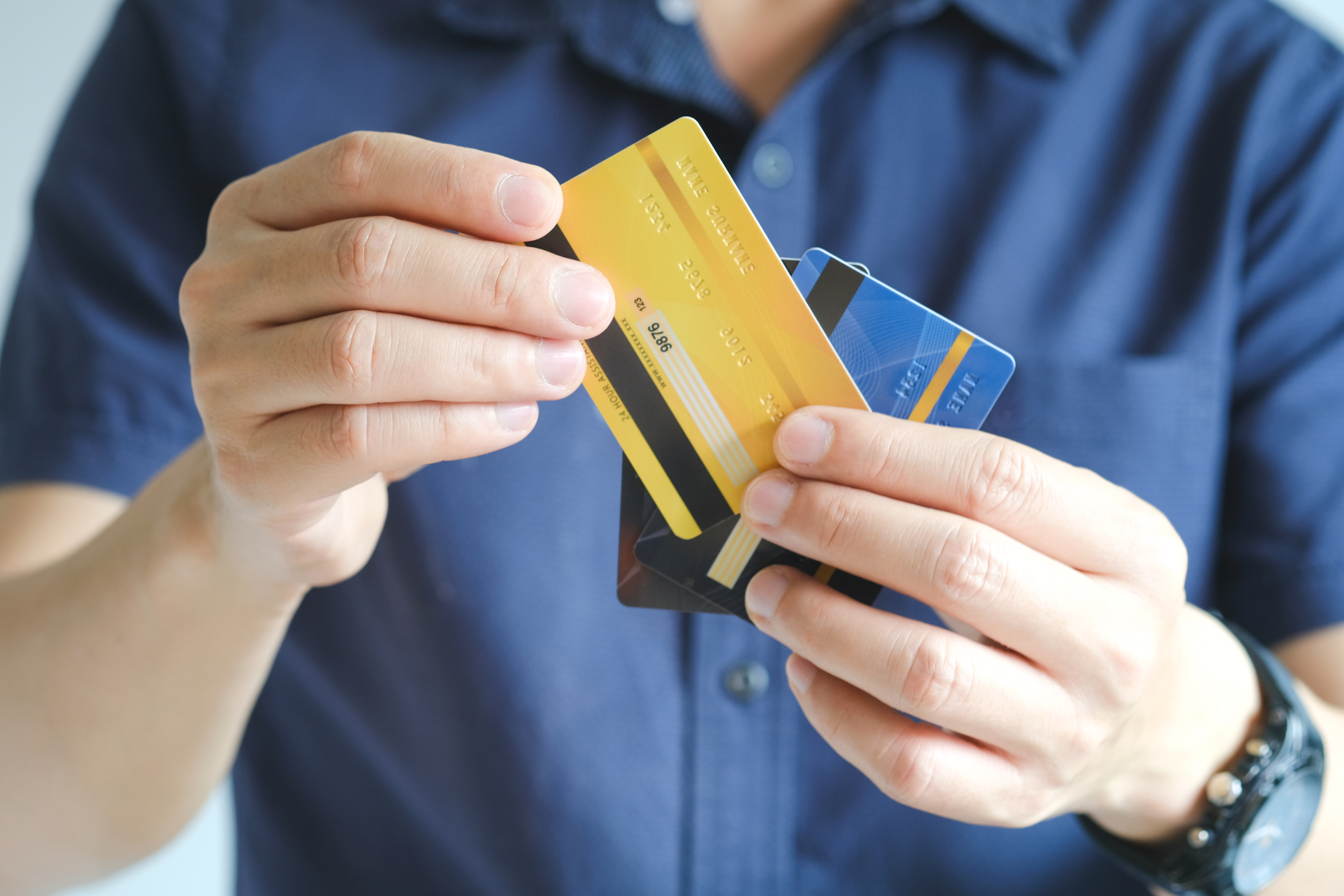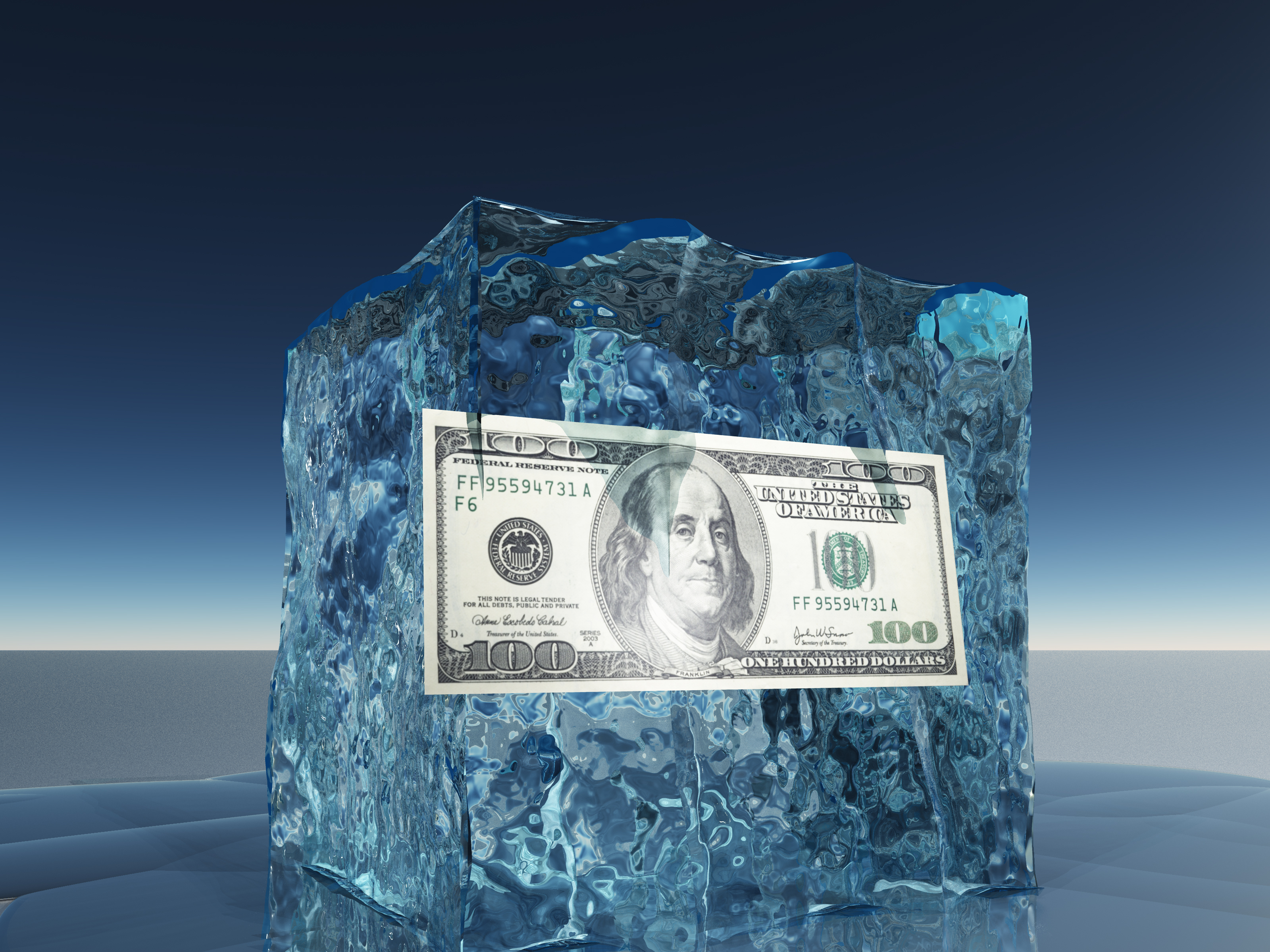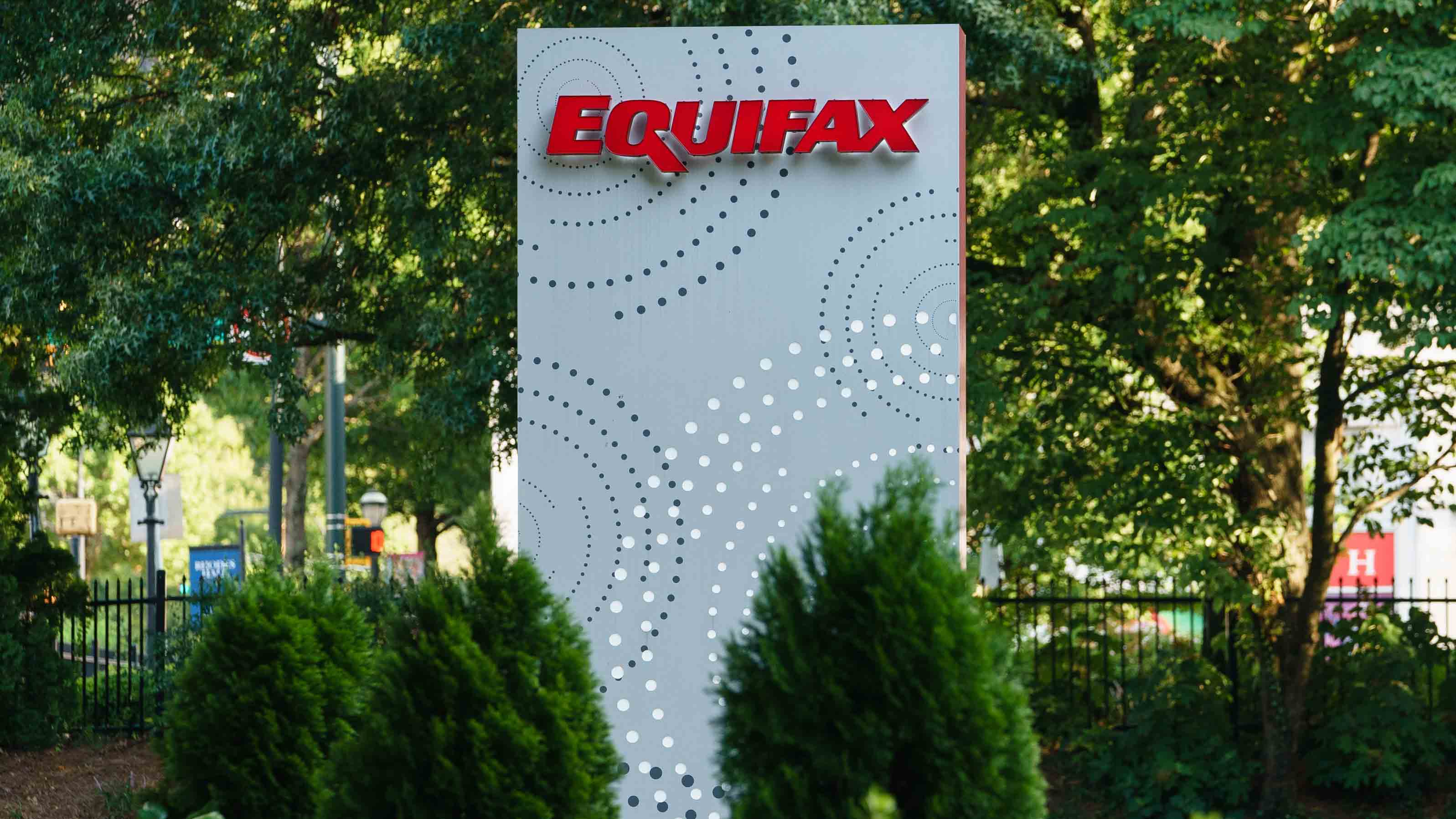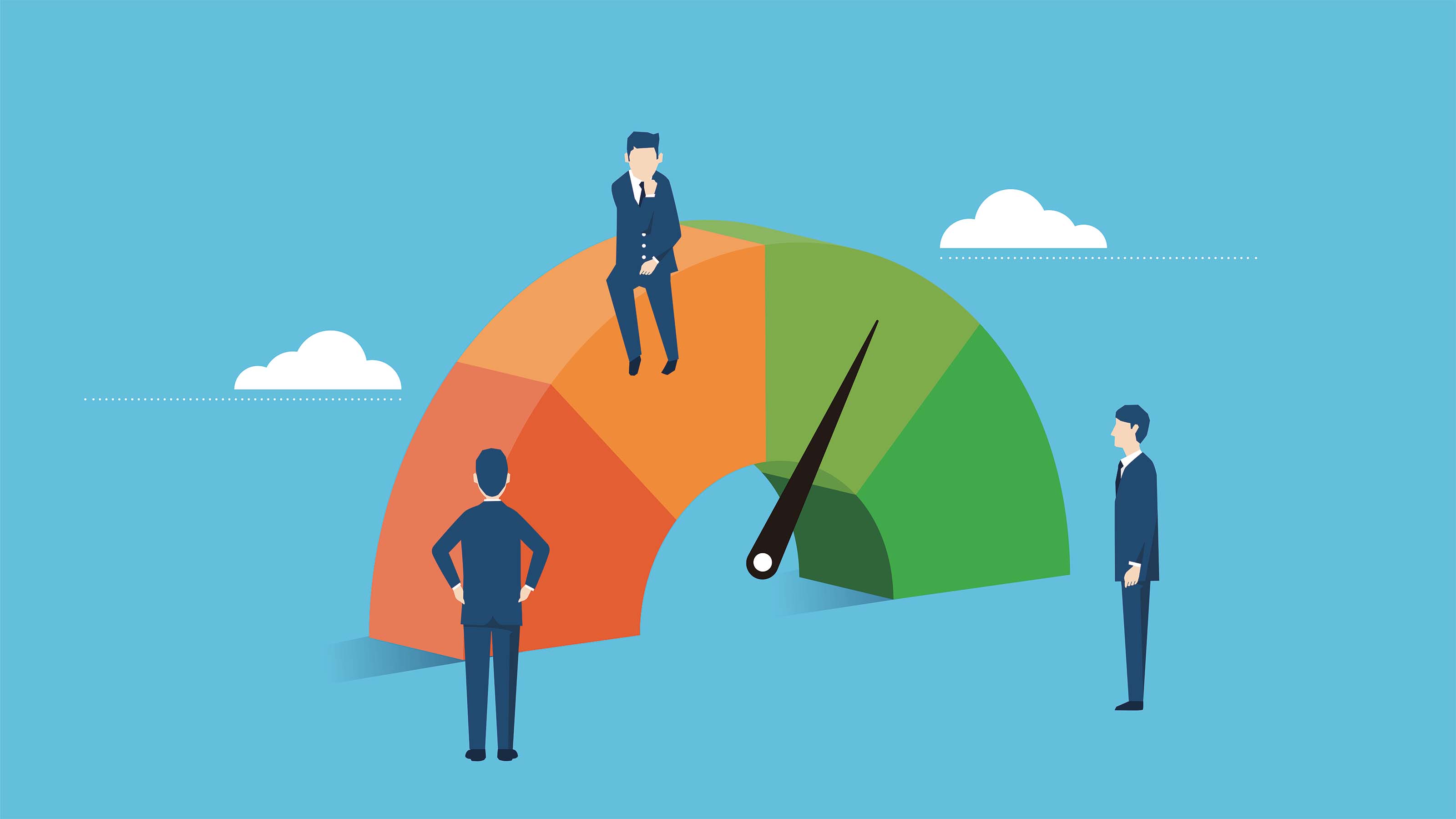How Many Credit Cards Should I Have?
Ever wondered, "How many credit cards should I have?" The answer isn’t as straightforward as you might think — it all depends on your financial situation.


Profit and prosper with the best of Kiplinger's advice on investing, taxes, retirement, personal finance and much more. Delivered daily. Enter your email in the box and click Sign Me Up.
You are now subscribed
Your newsletter sign-up was successful
Want to add more newsletters?

Delivered daily
Kiplinger Today
Profit and prosper with the best of Kiplinger's advice on investing, taxes, retirement, personal finance and much more delivered daily. Smart money moves start here.

Sent five days a week
Kiplinger A Step Ahead
Get practical help to make better financial decisions in your everyday life, from spending to savings on top deals.

Delivered daily
Kiplinger Closing Bell
Get today's biggest financial and investing headlines delivered to your inbox every day the U.S. stock market is open.

Sent twice a week
Kiplinger Adviser Intel
Financial pros across the country share best practices and fresh tactics to preserve and grow your wealth.

Delivered weekly
Kiplinger Tax Tips
Trim your federal and state tax bills with practical tax-planning and tax-cutting strategies.

Sent twice a week
Kiplinger Retirement Tips
Your twice-a-week guide to planning and enjoying a financially secure and richly rewarding retirement

Sent bimonthly.
Kiplinger Adviser Angle
Insights for advisers, wealth managers and other financial professionals.

Sent twice a week
Kiplinger Investing Weekly
Your twice-a-week roundup of promising stocks, funds, companies and industries you should consider, ones you should avoid, and why.

Sent weekly for six weeks
Kiplinger Invest for Retirement
Your step-by-step six-part series on how to invest for retirement, from devising a successful strategy to exactly which investments to choose.
With so many rewards credit cards to choose from, it can be hard to pick just one. The good thing is, you don’t have to. So, how many credit cards should you have? Although Experian found that the average American owns just under 4 credit cards, the answer isn’t as straightforward as you might think — it all depends on your financial situation. However, opting for multiple credit cards can have many benefits, as long as you use each card responsibly.
Here's what you need to know when deciding how many credit cards you should carry. Also, use our tool below — in partnership with Bankrate — to compare cards today.
Impact on credit score
Three credit card bureaus — Experian, TransUnion, and Equifax — evaluate several factors to determine if you have a good credit score. These bureaus look for at least two open “lines of credit,” including credit cards, mortgages, student loans, car loans, and other types of loans, to ensure that you can handle multiple budgeting and payment schedules.
Your credit score won’t be negatively affected by having too many lines of credit, but having too few lines of credit might be what’s keeping your credit score low. Equifax, for instance, recommends having at least two or three credit cards in addition to other types of credit, like a mortgage.
When you have a “thin” credit file, with few lines of credit and a short credit history, it makes it difficult for lenders to trust you as a borrower. Therefore, if you’re looking to bolster your credit file and increase the number of open credit accounts you have, opening a new card could help - especially if you use the card frugally. If you’re a responsible cardholder, adding a new addition to your wallet could prove beneficial to your overall credit score.
30% credit rule
Another way owning multiple credit cards can also boost your credit score is by lowering your credit utilization ratio. Credit utilization is the total amount you owe across accounts compared to your overall credit limit, and it affects 30% of your credit score. As a general rule of thumb, it’s recommended that your credit utilization remain below 30%. If you have few lines of credit, you may find it difficult to keep your utilization low.
By opening a new credit card, you’ll be able to increase your overall credit limit — the amount you’ve spent in proportion to this amount will be lowered, as long as you don’t rack up a balance right away.
The 30% rule: how much of your total available credit you spend affects your credit score
Spend wisely
While owning multiple credit cards can be beneficial to your credit score, it can also negatively affect your score if you don’t use those cards responsibly. Having too many open lines of credit can prove difficult for some cardholders — you may find it hard to juggle multiple payment due dates and rewards structures or be tempted to overspend, all of which are bad for your overall credit score.
Opening an additional credit card means more available credit, so if you think you may be tempted to spend too much with a higher credit limit, be wary of opening up another card. Payment history is the number one factor affecting your credit score, so if you fail to make even one payment on time, you’ll be hurting your score more than opening that extra card will help.
Timing and preparation pay off
If you do decide to take out a credit card, make sure you don’t take out too many within a short period of time, or you’ll negatively affect your credit score, especially in the short term. Instead, space out your applications by three to six months. And before you apply, make sure you know how to get approved for a credit card. Getting rejected will lower your credit score and you will need to wait several months before applying again.
Is it bad to have a lot of credit cards with zero balance?
Having a credit card you use infrequently can be an easy way of increasing your total credit availability, as long as you avoid opening too many at once. However, make sure you remember to spend just enough on the card for it to remain active. Your credit card can be closed due to “inactivity,” lowering your available credit.
Benefits of multiple credit cards
By having multiple credit cards, like one of the best travel rewards credit cards or cash back credit cards, you can maximize your earnings where you spend the most. You’ll have access to a greater variety of rewards, including any welcome bonuses associated with a card, which can save you hundreds of dollars. Just be sure you’re able to afford any annual fees associated with each card and that you can keep up with multiple payment due dates and redemption programs.
Furthermore, if you have existing credit card debt, you may want to consider adding a balance transfer credit card to your credit card lineup. This will allow you to avoid expensive interest rates while paying off credit card debt.
The verdict
How many credit cards should you have? There’s actually no set number. In fact, there are both positives and negatives to owning multiple cards, depending on how you use them.
Having several credit cards can be a good way to help you tackle various financial goals, whether it’s earning as much cash back as possible or avoiding interest rates on existing balances. Just make sure you don't overspend or miss any payments, or you could wind up in debt and damage your credit score.
Related Content
- Best Rewards Credit Cards
- Best Cash Back Credit Cards
- Credit Cards vs. Debit Cards: Which is Better for You?
- How to Pay off Credit Card Debt
- Best Credit Cards for Bad Credit
Profit and prosper with the best of Kiplinger's advice on investing, taxes, retirement, personal finance and much more. Delivered daily. Enter your email in the box and click Sign Me Up.

Erin pairs personal experience with research and is passionate about sharing personal finance advice with others. Previously, she was a freelancer focusing on the credit card side of finance, but has branched out since then to cover other aspects of personal finance. Erin is well-versed in traditional media with reporting, interviewing and research, as well as using graphic design and video and audio storytelling to share with her readers.
-
 Quiz: Do You Know How to Avoid the "Medigap Trap?"
Quiz: Do You Know How to Avoid the "Medigap Trap?"Quiz Test your basic knowledge of the "Medigap Trap" in our quick quiz.
-
 5 Top Tax-Efficient Mutual Funds for Smarter Investing
5 Top Tax-Efficient Mutual Funds for Smarter InvestingMutual funds are many things, but "tax-friendly" usually isn't one of them. These are the exceptions.
-
 AI Sparks Existential Crisis for Software Stocks
AI Sparks Existential Crisis for Software StocksThe Kiplinger Letter Fears that SaaS subscription software could be rendered obsolete by artificial intelligence make investors jittery.
-
 TransUnion Fined $23M For Tenant Screening, Credit Freezes
TransUnion Fined $23M For Tenant Screening, Credit FreezesGovernment charges TransUnion over illegal rental background checks and security freezes on consumer credit reports.
-
 Credit Cards vs Charge Cards: What Are the Differences?
Credit Cards vs Charge Cards: What Are the Differences?All you need to know about credit cards vs charge cards — differences, pros and cons.
-
 Credit card delinquency expected to increase in 2023
Credit card delinquency expected to increase in 2023Credit card and personal loan delinquency rates are expected to increase this year.
-
 What Is a Good Credit Score?
What Is a Good Credit Score?Having a good credit score can save you hundreds, even thousands of dollars on credit cards, mortgages and other loans.
-
 Best Credit Cards for Bad Credit 2023
Best Credit Cards for Bad Credit 2023If used wisely, these credit cards can help you dig out of bad credit; you may even earn 2% cash back.
-
 How to Freeze Your Credit in Three Steps
How to Freeze Your Credit in Three Stepscredit & debt Freezing your accounts at the three major credit bureaus is the best way to prevent thieves from opening new credit accounts in your name.
-
 Did Equifax Botch Your Credit Score?
Did Equifax Botch Your Credit Score?credit score Equifax is in the news–yet again–this time for sending lenders the wrong credit score. Here’s how to find out if you were affected and what to do next.
-
 Two Updates to Credit Reports
Two Updates to Credit Reportscredit & debt The major credit bureaus are changing how they report information about medical debt and buy now, pay later.